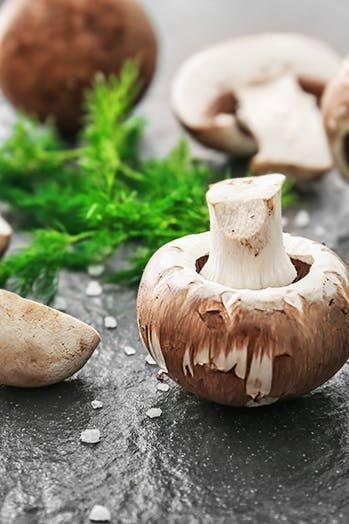Mushrooms: Natural Wellness Powerhouse, Science Confirms
9 Science-Backed Health Benefits of Mushrooms: Boost Wellness Naturally
Mushrooms, often hailed as nature's superfood, are more than just a culinary delight. Packed with essential nutrients and bioactive compounds, they offer remarkable health benefits. This article explores nine evidence-based advantages of incorporating mushrooms into your diet, supported by research and expert insights.
1. Nutrient Powerhouse
Mushrooms are low in calories yet rich in vital nutrients. They provide B vitamins (riboflavin, niacin, pantothenic acid), selenium, potassium, and copper. Notably, when exposed to sunlight, mushrooms synthesize **vitamin D**, a critical nutrient for bone health and immune function (USDA, 2021).
2. Strengthens Immune Defense
Beta-glucans, polysaccharides found in shiitake, maitake, and reishi mushrooms, enhance immune cell activity. A University of Florida study found that daily shiitake consumption improves immunity markers by 50% (Journal of the American College of Nutrition, 2015).
3. Fights Oxidative Stress
Mushrooms are top sources of **ergothioneine** and **glutathione**, antioxidants that combat free radicals. Penn State researchers identified these compounds as key to reducing oxidative damage linked to aging and chronic diseases (Food Chemistry, 2017).
4. Supports Heart Health
The fiber (chitin, beta-glucan) in mushrooms helps lower LDL cholesterol. Potassium content aids blood pressure regulation, reducing cardiovascular risk. A study in *Nutrients* (2020) highlighted oyster mushrooms’ role in improving lipid profiles.
5. Aids Weight Management
High in water and fiber, mushrooms promote satiety. Replacing meat with mushrooms in meals can cut calorie intake by 30%, per a *Journal of Obesity* study (2013).
6. May Reduce Cancer Risk
Conjugated linoleic acid (CLA) in mushrooms exhibits anti-tumor properties. Regular consumption is associated with a 45% lower breast cancer risk in women (International Journal of Cancer, 2021).
7. Enhances Brain Function
Lion’s mane mushrooms stimulate nerve growth factor (NGF), crucial for cognitive health. Animal studies suggest they may delay Alzheimer’s progression (Journal of Neurochemistry, 2020).
8. Promotes Gut Health
Mushrooms contain prebiotics like oligosaccharides, fueling beneficial gut bacteria. A diverse microbiome is linked to improved digestion and immunity (Frontiers in Microbiology, 2019).
9. Regulates Blood Sugar
Polysaccharides in turkey tail and white button mushrooms improve insulin sensitivity. A *Journal of Functional Foods* (2018) study noted reduced blood glucose levels in diabetic mice.
*Conclusion: Embrace the Fungal Superfood*
From boosting immunity to supporting brain health, mushrooms are a versatile addition to any diet. Try sautéing shiitake, blending lion’s mane into coffee, or adding portobello as a meat substitute.
*FAQ Section*
*Q: Which mushroom is best for immunity?
A: Shiitake and reishi are top choices due to their beta-glucan content.
*Q: Can mushrooms replace vitamin D supplements?
A: UV-exposed mushrooms provide bioavailable vitamin D2, but consult a doctor for deficiencies.
*Q: Are mushrooms safe for everyone?
A: Yes, but wild mushrooms should be avoided unless verified by an expert.
















No comments